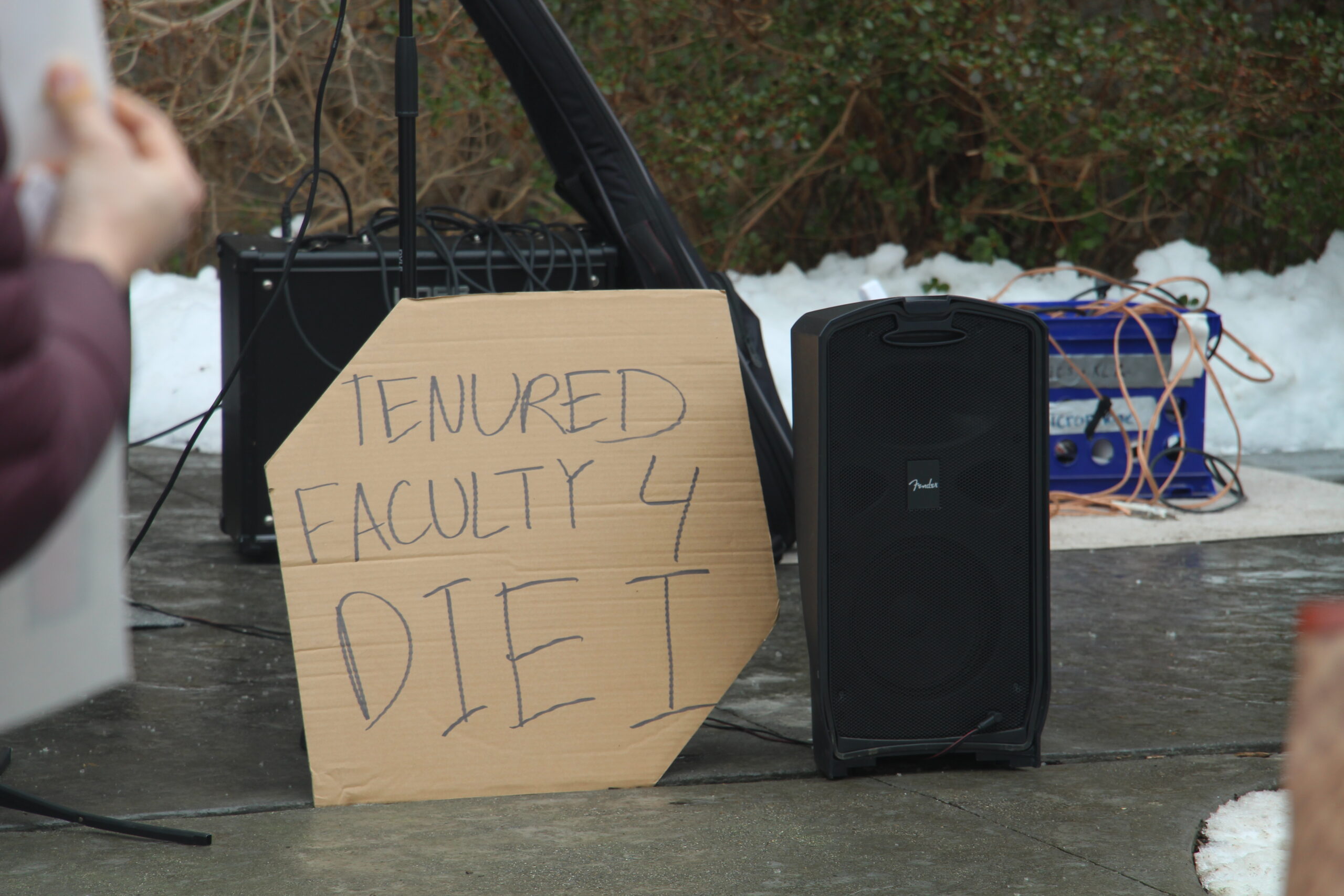Photo courtesy of Unsplash
Within days of President Trump nominating Judge Amy Coney Barrett to the Supreme Court a widespread narrative developed, painting Judge Barrett a threat to basic human rights. Senate Minority Leader Chuck Schumer (D-NY) stated “President Trump has once again put Americans’ health care in the crosshairs.” Sen. Elizabeth Warren (D-MA) responded to Judge Barrett’s nomination with “We cannot let extremists take us back to the time of back-alley abortions,” while Sen. Tammy Duckworth (D-IL) declared the nomination represented Republicans’ “long-sought goal of repealing the Affordable Care Act and ripping away health care from millions.” These statements on Judge Amy Coney Barrett do not accurately convey her judicial philosophy or intent. A Justice Barrett would not result in the Affordable Care Act to be struck down, Roe v. Wade (1973) to be overturned, or take away constitutional equal rights from the LGBT+ community, or anyone for that matter.
In 1992, a U.S. Judge critiqued Roe v. Wade (1973) in a law review article, stating the decision “invited no dialogue with legislators. Instead, it seemed to entirely remove the ball from the legislators’ court.” This judge was Ruth Bader Ginsburg. Justice Ginsburg was of course an advocate for personal freedoms, in regard to a woman’s right to choose. However, Justice Ginsburg recognized the fault in Roe v. Wade, in which the Supreme Court overstepped its role of a constitutional check of legislation, to become the legislators. Now, none of this is to say that Roe v. Wade should be overturned, because it shouldn’t. Rather it set a dangerous precedent of the judiciary acting as legislators. A Justice Amy Coney Barrett is likely to follow this philosophy that Roe v. Wade shouldn’t be overturned, but would likely rule against further abortion-related cases which serves as legislation, as that power is reserved for the legislative branch, not the judicial branch. At a luncheon in 2013, Amy Coney Barrett said this about the future of Roe v. Wade, “it is very unlikely at this point that the court is going to overturn Roe, or Roe as curbed by Casey. The fundamental element, that the woman has a right to choose abortion, will probably stand.” Roe v. Wade will not be overturned in the near future. Even if I am wrong, and a Justice Barrett votes to overturn it, there are simply not five total votes to overturn it; Justices Breyer, Sotomayor, Kagan, Roberts, and Gorsuch have made it clear that they are against overturning Roe v. Wade. That right there is a majority of the Supreme Court. Furthermore, Justices Alito and Kavanaugh are unlikely to cast votes to overturn it, referring to the case as “warranted respect”’ and “precedent”, respectively.
In September, just two weeks before Judge Barrett’s nomination, she served on an eight-judge panel in a mock court of Texas v. California at William & Mary Law School. Judge Barrett’s decision is unknown due to the anonymity of the panel. However, five of the judges ruled that only the individual mandate of the Affordable Care Act, which punished those without a healthcare plan with an added tax, was unconstitutional, but allowed the rest of the law to remain. The other three Judges would not have heard the case as they argued that the defendant states didn’t have a standing for the lawsuit. None of the Judge’s rulings would have resulted in anyone losing their healthcare. In fact, none of their rulings would have made any changes to the current law, as the individual mandate was nullified in the Tax Cuts and Jobs Act of 2017. Again, as The Dispatch’s David French phrases it, Judge Amy Coney Barrett represents “evolution, not revolution.”
Now before I go on, let me state an obvious, yet necessary claim. No one should be fired or discriminated against based on their sexuality, or any other identity. However, in some cases it is protected by the First Amendment, in terms of both free speech and freedom of religion. Based on Judge Barrett’s originalist judicial philosophy, I would predict her to rule in favor of free speech and/or religion in cases such as the upcoming Fulton v. City of Philadelphia. This does not mean Judge Barrett is an advocate of discrimination based on sexual orientation, but rather that it is not protected in the Civil Rights Act of 1964. Title VII bans discrimination based on race, color, religion, sex and national origin, but does not refer to sexual orientation. Many will respond that sexual orientation ought to be protected by civil rights, which is a fair argument. However, that is the duty of the legislature to accomplish. For the Supreme Court to implement that would be an overreach of powers and would set a precedent which would allow the judiciary to create laws, dangerous because judges serve for life and cannot be held responsible by the people.
Noah Feldman, a liberal professor at Harvard Law, argues that Judge Amy Coney Barrett would make a great Supreme Court Justice due to her ability to judge on constitutional interpretation, and not on her personal beliefs. In Feldman’s Bloomberg oped, he writes “Regardless of what you or I may think of the circumstances of this nomination, Barrett is highly qualified to serve on the Supreme Court. I disagree with much of her judicial philosophy and expect to disagree with many, maybe even most of her future votes and opinions. Yet despite this disagreement, I know her to be a brilliant and conscientious lawyer who will analyze and decide cases in good faith, applying the jurisprudential principles to which she is committed. Those are the basic criteria for being a good justice. Barrett meets and exceeds them.” Feldman supports Barrett, despite their conflicting ideologies because he understands that the judiciary differs from the rest of government in which they base their decisions on their interpretation of the Constitution and precedent cases. The political views of a Justice should become irrelevant everytime they put on the robe. A core purpose of confirmation hearings is to determine whether the nominee will do so. However, as seen in the political smear campaigns of prior nominees Robert Bork, Clarence Thomas, Neil Gorsuch, and Brett Kavanaugh, opposition arises not from concerns of their qualifications for the Supreme Court, but from concerns that the nominee won’t advance their political cause. While politicians initiated this behavior, its largest proponents are prominent celebrities and those with large audiences. In response to Judge Barrett’s nomination, HBO’s Bill Maher called her a “f**kin’ nut” and said she was “Catholic. Really Catholic. I mean, really, really Catholic—like speaking in tongues.” Perhaps most egregious was activist Ibram X. Kendi’s sickening response to a tweet about Amy Coney Barrett having adopted two Haitian children, “Some White colonizers ‘adopted’ Black children. They ‘civilized’ these ‘savage’ children in the ‘superior’ ways of White people.” I point this out not to vilify anyone, but rather to illustrate the harmful consequences of politifying the Supreme Court.
At the first presidential debate, when asked about the nomination of Amy Coney Barrett, Joe Biden stated “I’m not opposed to justice, she seems like a very fine person.” Although Biden and Barrett share different political ideologies, Biden recognizes the judiciary shouldn’t become a political tool. I think people regardless of political affiliation agree that judicial nominations shouldn’t become demagogic attacks on every part of their lives, but rather a final job interview to determine if they will set aside their political views, and judge from a non-political perspective of the Constitution.•










